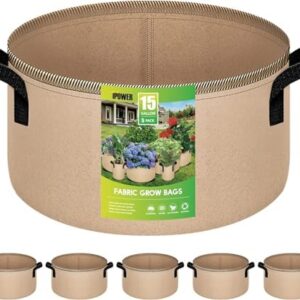Have you ever wondered what happens to all the food scraps and waste that get thrown away every day? Well, for organic farmers, these leftovers are actually the key to creating nutrient-rich soil through the magical process of composting.
Composting is a simple yet powerful way to recycle organic materials like fruit and vegetable scraps, coffee grounds, eggshells, and yard waste. By combining these ingredients in a pile and letting them decompose over time, farmers are able to create a dark, crumbly substance known as compost that is chock-full of essential nutrients for plants.
The beauty of composting lies in its ability to mimic the natural cycle of decomposition that occurs in forests and grasslands. In nature, dead plants and animals break down over time, releasing their nutrients back into the soil to nourish new growth. Composting speeds up this process by providing the ideal conditions for microorganisms like bacteria, fungi, and earthworms to break down organic matter into its basic components.
These tiny creatures play a vital role in turning food waste into compost. Bacteria and fungi break down complex molecules like carbohydrates and proteins into simpler forms that plants can absorb. Meanwhile, earthworms aerate the compost pile and help mix the ingredients together, creating a rich, healthy environment for microbial activity.
The end result of this magical transformation is a dark, crumbly substance that is often referred to as “black gold” by farmers. This nutrient-rich soil amendment is teeming with beneficial microorganisms, such as bacteria and fungi, that help improve soil structure, retain moisture, and suppress diseases. Compost also contains essential nutrients like nitrogen, phosphorus, and potassium that are vital for plant growth and development.
Organic farmers rely on compost as a natural alternative to chemical fertilizers, which can harm the environment and deplete soil health over time. By recycling food waste and other organic materials into compost, farmers are able to improve the fertility of their soil without resorting to harmful synthetic inputs.
Composting also plays a crucial role in reducing waste and fighting climate change. Instead of sending food scraps to landfill, where they release methane gas as they decompose, composting allows organic matter to be recycled back into the earth as a valuable resource. This helps to reduce greenhouse gas emissions and mitigate the effects of climate change.
In addition to its environmental benefits, composting also has a number of practical advantages for farmers. By producing their own compost on-farm, farmers can save money on fertilizer costs and reduce their dependence on external inputs. Compost also helps to improve soil structure, increase water retention, and promote biodiversity, leading to healthier plants and higher yields.
The magic of composting lies in its ability to transform waste into a valuable resource, nourishing the soil and supporting sustainable agriculture. By harnessing the power of microorganisms and earthworms, organic farmers are able to turn food scraps into nutrient-rich soil that benefits both plants and the planet.
So, the next time you toss your apple cores or coffee grounds into the compost bin, remember that you are contributing to a process that is as old as nature itself. Composting is a simple yet powerful way to close the loop on the food cycle, turning waste into wealth and helping to create a more sustainable future for us all.






